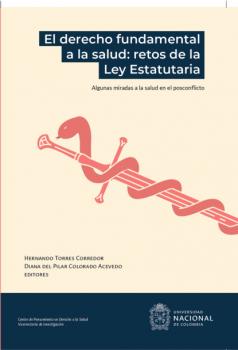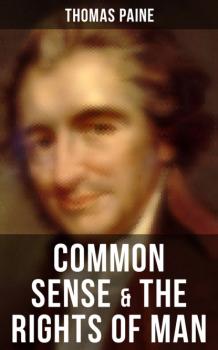Социология
Различные книги в жанре СоциологияEl derecho fundamental a la salud : retos de la ley estatutaria
Este libro, El derecho fundamental a la salud: retos de la Ley Estatutaria —algunas miradas a la salud en el posconflicto—, es el cuarto libro preparado por el Centro de Pensamiento en Derecho a la Salud, de la Facultad de Derecho, Ciencias Políticas y Sociales de la Universidad Nacional de Colombia, sede Bogotá. Algunos de sus contenidos se originaron a partir de las inquietudes y proposiciones presentadas en los conversatorios «¿Cómo va la Ley Estatutaria en Salud?» y «El daño a la salud y la salud en el posconflicto», realizados por el Centro de Pensamiento con la participación de académicos, expertos y gestores de instituciones públicas y organizaciones no gubernamentales (ong), y de asociaciones de pacientes y de profesionales de la salud, como corresponde a su línea de acción integradora de diversos saberes y perspectivas. En ese mismo sentido, cabe destacar que en el libro se encuentran miradas desde diversas disciplinas, como el derecho; la medicina y otras ciencias de la salud; las ciencias económicas, y las ciencias naturales, por mencionar algunas.El libro está conformado por acápites que desarrollan diversos tópicos relativos a la salud, a los sistemas de salud y de seguridad social, que tienen especial trascendencia en el momento actual. Primero, como resultado de la evolución de las fuentes normativas y jurisprudenciales más importantes, y de los alcances, logros y propósitos aún por alcanzar de la academia y de los movimientos sociales, desde el inicio de la década del noventa hasta hoy, por lograr la real garantía del derecho fundamental a la salud. Segundo, de manera especial y con un propósito denodado, se exponen temas que resultan de necesaria consideración en el escenario del posconflicto, como supuestos para poder encarar la paz como un objetivo constante y una realidad en nuestro país, máxime en escenarios que presentan, de manera ascendente, múltiples obstáculos para el desarrollo de los compromisos adoptados por el Estado colombiano, tristemente, por instancias políticas e institucionales que deberían tener como horizonte la realización material de la paz.
The government of London
"The government of London" by William McCullagh Torrens. Published by Good Press. Good Press publishes a wide range of titles that encompasses every genre. From well-known classics & literary fiction and non-fiction to forgotten−or yet undiscovered gems−of world literature, we issue the books that need to be read. Each Good Press edition has been meticulously edited and formatted to boost readability for all e-readers and devices. Our goal is to produce eBooks that are user-friendly and accessible to everyone in a high-quality digital format.
TVMorfosis. La década
A 10 años de estar anualmente pensando y repensando la televisión, así como los elementos que la rodean y van con ella, como son sus audiencias, sus contenidos, sus redes, sus fusiones mediáticas, sus giros programáticos, sus diversos inventos técnicos y las estrategias mediático-comerciales, en esta antología hemos reunido algunos de los análisis más representativos de la última década. Esta obra constituye un punto de referencia para comprender las transformaciones de lo televisivo y, desde allí, del entorno comunicacional digital en que se despliega.
La retórica reaccionaria
A lo largo de los últimos dos siglos y medio se produjeron las principales conquistas emancipatorias de la ciudadanía moderna: igualdad ante la ley (siglo XVIII), participación política (siglo XIX) y derechos sociales (siglo XX). Pero a cada una de estas conquistas le siguió una furiosa ola de reacciones conservadoras tan influyentes social y culturalmente como las propias reformas contra las que se levantaban.En este verdadero clásico de las ciencias sociales, Albert O. Hirschman logró identificar y aislar tres tipos de argumentos reaccionarios paradigmáticos (la tesis de la perversidad, la de la futilidad y la del riesgo de todo intento de cambio histórico) que sirven para analizar la lógica con la que piensan y actúan los reaccionarios de cualquier época… también la nuestra.
Charles Dickens - Social Reformer
It seems important to emphasize the fact that Charles Dickens was in a very special sense a social reformer. It was not simply that he loathed shams. With him it was not merely a case of creating characters at which the whole world laughed, humbugs who excited its wrath and impostors who provoked its derision. He was at heart and by conviction a reformer. He looked out upon his age and found corruption in public places and cynicism displayed towards the vital things in national life and character. He found the poor neglected in primary things, such as education, housing, and sanitation, and drilled, dragooned and disciplined out of all reason in non-essentials. Stupendous neglect of child-life went side by side with a grotesquely organized hypocrisy for its welfare. And he set himself to remedy these things, not merely by creating Squeers, Bumble, Jarndyce, Gradgrind, Bounderby, and the rest, but by a constant endeavour in other directions to awaken the social consciousness to clamant evils and imperious needs. More than in his novels, the deep and passionate reforming zeal of the man is disclosed in those many anonymous articles and sketches which he contributed to quite a variety of journals. In these the enthusiasm, the scorn, the hatred, and sometimes even the plaintive acrimony of the real Charles Dickens is to be found. One arises from a perusal of these comparatively unknown examples of his work with a renewed assurance that the views of his characters in his novels were not interpolated merely for the purpose of creating a literary or emotional effect: they were the burning conviction of the creator of the character himself.
Darkwater: Voices from Within the Veil (Unabridged)
This eBook edition of «Darkwater: Voices from Within the Veil» has been formatted to the highest digital standards and adjusted for readability on all devices. "I venture to write again on themes on which great souls have already said greater words, in the hope that I may strike here and there a half-tone, newer even if slighter, up from the heart of my problem and the problems of my people." William Edward Burghardt «W. E. B.» Du Bois (1868 – 1963) was an American sociologist, historian, civil rights activist, Pan-Africanist, author, writer and editor. Born in Great Barrington, Massachusetts, Du Bois grew up in a relatively tolerant and integrated community. After completing graduate work at the University of Berlin and Harvard, where he was the first African American to earn a doctorate, he became a professor of history, sociology and economics at Atlanta University. Du Bois was one of the co-founders of the National Association for the Advancement of Colored People in 1909. Contents: Credo The Shadow of Year A Litany at Atlanta The Souls of White Folk The Riddle of the Sphinx The Hands of Ethiopia The Princess of the Hither Isles Of Work and Wealth The Second Coming "The Servant in the House" Jesus Christ in Texas Of the Ruling of Men The Call The Damnation of Women Children of the Moon The Immortal Child Almighty Death Of Beauty and Death The Prayers of God The Comet A Hymn to the Peoples
Common Sense & The Rights of Man
This eBook edition of «Common Sense & The Rights of Man» has been formatted to the highest digital standards and adjusted for readability on all devices. Paine's visionary call for republicanism and social welfare was generations ahead of its time when «Rights of Man» was published. According to Paine – Government's sole purpose is safeguarding the individual and his/her inherent, inalienable rights; each societal institution that does not benefit the nation is illegitimate—especially monarchy and aristocracy. Human rights originate in Nature, thus, rights cannot be granted via political charter, because that implies that rights are legally revocable, hence, would be privileges. Common Sense was published anonymously on January 10, 1776, at the beginning of the American Revolution, and became an immediate sensation. Written in clear and persuasive prose, Thomas Paine marshaled moral and political arguments to encourage common people in the Colonies to fight for egalitarian government. It. Common Sense made public a persuasive and impassioned case for independence, which before the pamphlet had not yet been given serious intellectual consideration. He connected independence with common dissenting Protestant beliefs as a means to present a distinctly American political identity, structuring Common Sense as if it were a sermon. Historian Gordon S. Wood described Common Sense as «the most incendiary and popular pamphlet of the entire revolutionary era». Thomas Paine (1737-1809) was an English-American political activist, philosopher, political theorist, and revolutionary. One of the Founding Fathers of the United States, he authored the two most influential pamphlets at the start of the American Revolution, and he inspired the rebels in 1776 to declare independence from Britain. Paine's ideas reflected Enlightenment-era rhetoric of transnational human rights.
WOMEN & ECONOMICS
"Women and Economics" is a book written by Charlotte Perkins Gilman and published in 1898. It is considered by many to be her single greatest work, and as with much of Gilman's writing, the book touched a few dominant themes: the transformation of marriage, the family, and the home, with her central argument: «the economic independence and specialization of women as essential to the improvement of marriage, motherhood, domestic industry, and racial improvement.» The 1890s were a period of intense political debate and economic challenges, with the Women's Movement seeking the vote and other reforms. Women were «entering the work force in swelling numbers, seeking new opportunities, and shaping new definitions of themselves.» It was near the end of this tumultuous decade that Gilman's very popular book emerged. Charlotte Perkins Gilman (1860-1935) was a prominent American feminist, sociologist, novelist, writer of short stories, poetry, and nonfiction, and a lecturer for social reform.









